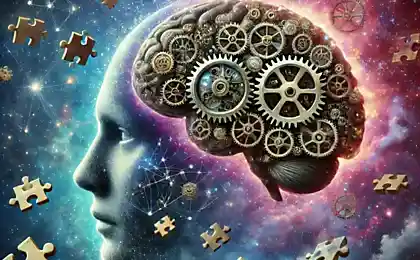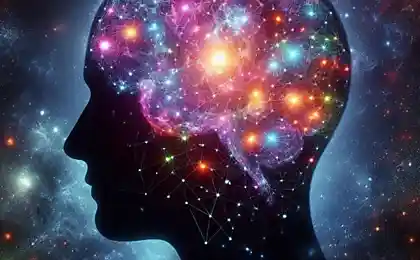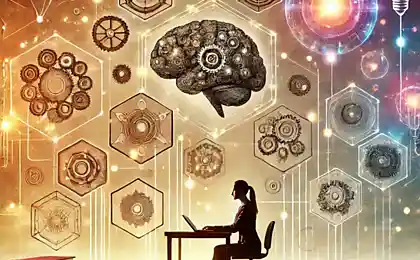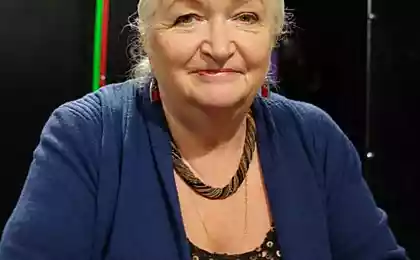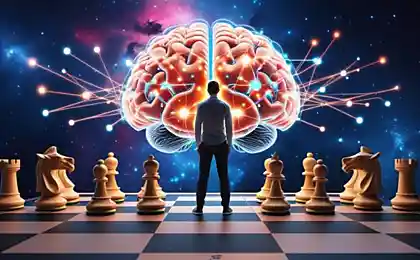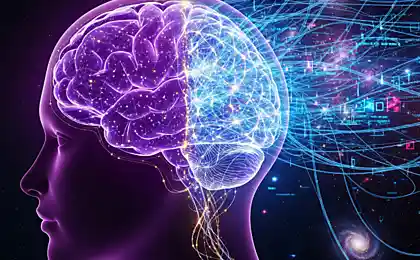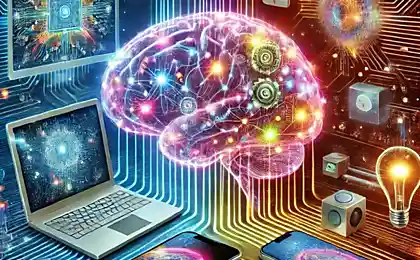185
What does a person need to understand by adulthood?

Adulthood is not just legal status or the right to vote and buy alcohol. This is a fundamental milestone in human life, the transition from childhood to independence, which requires serious reflection. What truths should everyone understand, crossing the threshold of adulthood? This will be discussed in our article.
Becoming an adult, a person acquires not only new rights, but also assumes numerous obligations to himself and society. Research by psychologists shows that successful transition to adulthood largely depends on mastering certain concepts and forming key skills before this legal milestone.
Self-Knowledge and Personal Identity
By adulthood, you need to realize that finding yourself is a continuous process that does not end at 18. According to the theory of psychosocial development of Eric Erikson, in adolescence, there is a formation of personal identity, which determines the future path of life.
Key aspects of self-knowledge:
- Awareness of your true interests, not those imposed from outside
- Understanding your strengths and weaknesses
- Forming your own value system
- Accepting your uniqueness and individuality
Practical advice: Keep a self-reflection diary where you will note your reactions to different situations, reflect on your values and goals. Ask yourself deep questions: “What is really important to me?”, “What actions fill me with energy?”, “What can I do best?”
Responsibility and consequences of decisions

One of the fundamental truths of adulthood is that every decision has consequences, and the responsibility for them lies with the individual. Neurobiological studies indicate that the prefrontal cortex, which is responsible for decision-making and risk assessment, is fully formed by the age of 25. However, this does not free young people from the need to learn to make informed decisions.
Formula for responsible decision:
- Gathering all available information
- Analysis of possible short- and long-term consequences
- Evaluation of compliance of the decision with personal values
- Willingness to take responsibility for any outcome
Statistics show that many serious life problems of young people (financial difficulties, health problems, conflicts in relationships) are associated with insufficiently thought-out decisions and unwillingness to accept their consequences.
Freedom is not the ability to do what you want, but the ability not to do what you do not want. - Jean-Jacques Rousseau
Financial literacy
More than 70% of young people experience financial difficulties in the first years of independent life. Lack of basic financial knowledge causes long-term material problems and emotional stress.
Basic financial concepts that need to be understood by adulthood:
- Budgeting and implementation
- Principles of savings and investment
- Responsible use of credit instruments
- Tax liabilities
- Financial security and fraud protection
According to economists, the habit of saving at least 10% of income, formed at the beginning of independent life, can provide financial stability in the long run.
Practical advice: Start tracking all your expenses for a month with special apps or even a regular spreadsheet. This will help you understand where the money is going and identify opportunities to optimize spending. Create a “safety cushion” – savings equal to at least three months of income.
Emotional intelligence and interpersonal relationships
Psychological research suggests that success in adulthood depends largely on emotional intelligence — the ability to understand one’s own emotions and those of others. By adulthood, it is important to realize that the quality of relationships with others is one of the key factors of subjective well-being.

Components of healthy interpersonal relationships:
- Respect for personal boundaries
- Effective communication
- Empathy and capacity for empathy
- Ability to resolve conflicts constructively
- Honesty and mutual trust
Critical Thinking and Information Literacy
In the era of information overload, the ability to critically evaluate incoming information becomes a vital skill. By adulthood, it is important for a person to learn to distinguish facts from opinions, recognize manipulations and draw reasonable conclusions.
Signs of developed critical thinking:
- Ability to ask accurate questions
- Assessment of the reliability of sources of information
- Ability to identify logical errors in argumentation
- Willingness to change opinion under the influence of new facts
- Understanding your own cognitive biases
Research shows that developing critical thinking is the best defense against manipulation, fake news, and information pressure. This skill helps to make more informed decisions in all areas of life.
Physical and mental health
By adulthood, a person must understand that health is not a given, but a resource that requires constant attention and care. Habits formed in youth have a significant impact on the quality and length of life in the future.
The basics of a healthy lifestyle:
- Regular physical activity
- Balanced nutrition
- Quality sleep (7-9 hours)
- Stress management
- Quitting bad habits
- Regular preventive examinations
Particular attention should be paid to mental health. According to the World Health Organization, about 75% of mental disorders manifest before the age of 25. Being aware of the importance of taking care of your psychological well-being and being willing to seek professional help when needed is an important aspect of growing up.
Professional self-determination and continuous learning
By adulthood, it is important to understand that the choice of profession is not a single action, but a process that can continue throughout life. According to experts, modern young people in their careers will change an average of 10-14 professions.
In a world where technology is evolving exponentially, readiness for lifelong learning and professional reorientation is becoming a key driver of success in the job market. Research shows that the most sought-after skills of the future are adaptability, creativity and the ability to work in conditions of uncertainty.
Practical advice: Do not choose a profession just because of prestige or high pay. Find a balance between what you are interested in, what you do well, and what is in demand in the labor market. Develop meta-skills (critical thinking, communication, creativity) that will remain relevant regardless of changes in specific industries.
Conclusion
Adulthood is not the point of arrival, but the beginning of a long journey called adulthood. Readiness for independence is determined not so much by age as by an understanding of fundamental principles and possession of key skills.
Each new generation faces the unique challenges of its time, but the basic aspects of growing up remain the same: knowing yourself, taking responsibility, building healthy relationships, financial literacy, health care and continuous development.
Awareness of these truths does not happen at once; it is the result of experience, reflection and meaningful living each day. However, the sooner a person begins to think about them, the more harmonious his transition to adulthood will be.
Glossary
Personal identity
A holistic view of a person as a unique person, including a system of values, beliefs and life goals.
Emotional intelligence
The ability to recognize one’s own emotions and those of others, and to use emotional information to control thinking and behavior.
Critical thinking
A type of thinking characterized by the analysis of information, the identification of logical connections, the verification of arguments and the formation of reasonable conclusions.
Financial literacy
The set of knowledge, skills and attitudes in the field of financial behavior, allowing you to make informed decisions and achieve financial well-being.
Cognitive biases
Systematic errors in thinking that affect judgment and decision-making. They are the result of simplified processing of information by the brain.
Metascience
High-order basic skills that are applicable to different fields of activity and remain relevant regardless of changes in specific occupations.
Weather and mood: The Invisible Connection of Nature and the Psyche
What 5 Businesses Will Survive in Any Crisis? Keep it.


